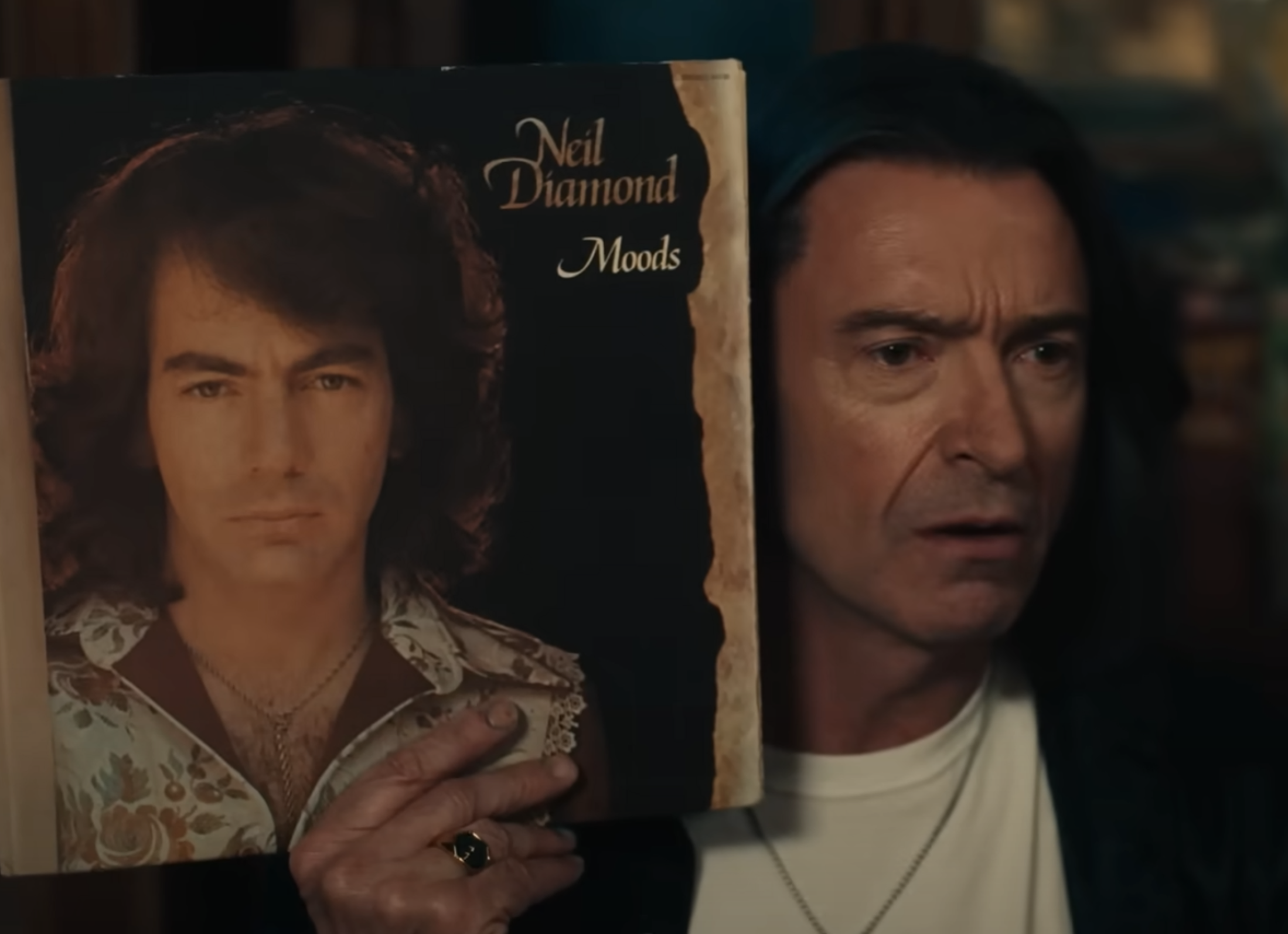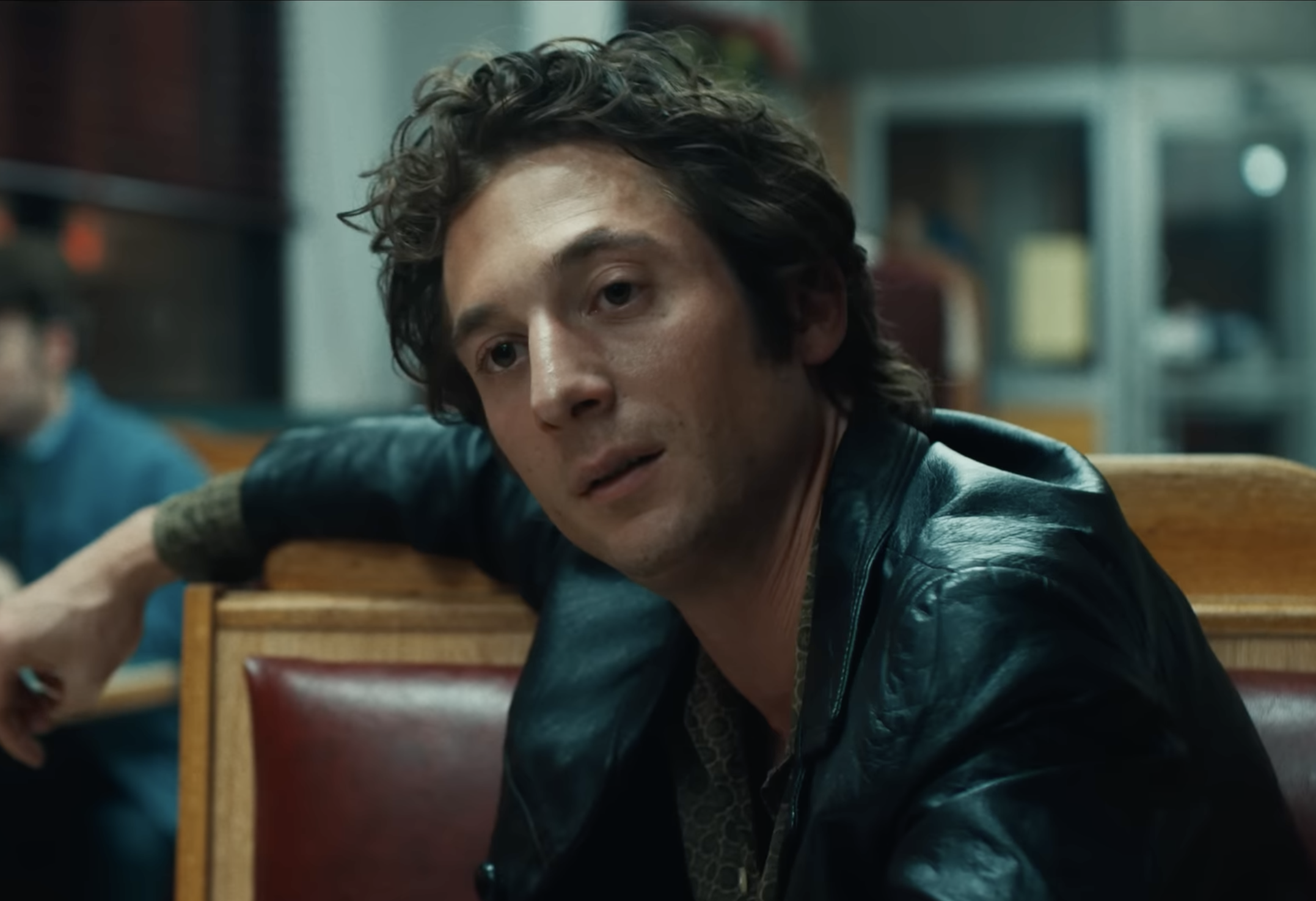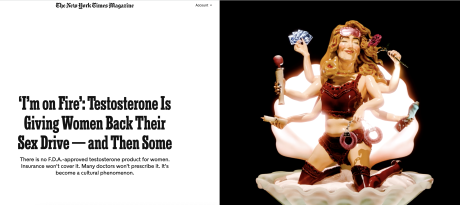Posted on 8.24.05: The winding down of the ’05 summer is fortunate in two respects: it’s getting a tiny bit cooler in the city (there was a transcendent breeze travelling southward down Broadway Monday night around 9:30 pm), and it gives me something to write about during a flat week.
It felt to me like an above-average summer. At the end of each year I always come up with a list of 40 or 45 films that were good, very good or excellent, and here we had a summer providing about 21 first-raters, or just over five per month. (I’m going by the perimeters of May 1st through August 30th.) Not bad for a season that’s generally thought to be mainly about flotsam, popcorn and yeehaw.
GOOD AS IT GOT (in the following order): Hustle & Flow, The Constant Gardener, Cinderella Man, Last Days, Crash, The Beautiful Country, Grizzly Man, Wedding Crashers, Batman Begins, Mad Hot Ballroom, The Beat That My Heart Skipped, The Aristocrats, Broken Flowers, Kingdom of Heaven, The White Diamond, Layer Cake, Cronicas, My Summer of Love, This Divided State, Tell Them Who You Are, War of the Worlds.
That was the good news, although I’m presuming very few even had the option of seeing The White Diamond, a Werner Herzog doc I wrote about in the June 8 column, or Mark Wexler‘s Tell Them Who You Are, a feisty portrait of the director’s relationship with his overbearing dad, the award-winning cinematographer Haskell Wexler.
The lesser films were tedious, grueling or worse. I am one who feels especially dispirited by cheesily commercial films made by directors and writers whom I know are capable of delivering much smarter and craftier stuff, and…well, I guess I should leave Judd Apatow and The 40 Year-Old Virgin alone. (I’ve been warned by readers.)
But this isn’t an obsession thing of mine. It’s a sum-up piece and Virgin is really, really not fit to lick the boots of The Wedding Crashers, and it certainly deserves to be called the SUMMER’S MOST OVER-PRAISED SO-SO COMEDY.
Just gonna zotz out the rest…
PUTRID, REPUGNANT, MALIGNANT…NOT TO MENTION ONE OF THE MOST BREATHTAKING CAPITULATIONS & SELL-OUTS IN HOLLYWOOD HISTORY BY A TALENTED DIRECTOR WHO KNEW BETTER: Doug Liman’s Mr. and Mrs. Smith, which way too many people gave a pass to with the rationale that it was harmless fluff.
MOST ATTENTION-GETTING WIPEOUT & ACROSS-THE-BOARD CAREER DAMAGER: The Island. The bitch-slapping of Michael Bay may not have been such a bad thing for the guy. The only way Bay is going to do better work (and I know he’s capable of it) is to be woken up from the narcotized pipe dream of being Michael Bay (muscle cars, bimbo girlfriends, parking in handicapped spaces, etc.), and it’s a safe bet that the staggering failure of The Island has made him reconsider his whole program. Producer Walter Parks got slapped around also when he said insufficient star wattage on the part of Island costar Scarlett Johansson was one of the reasons the film tanked; the take-no-guff Johansson fired right back and set him straight.
MOST LOATHSOME BIG-STUDIO RELEASES AFTER PREVIOUS TWO: The Dukes of Hazzard, Star Wars, Episode 3: Revenge of the Sith, Bewitched.
SEX SCENES SO BORING AND UNAPPETIZING THAT THOUSANDS OF COUPLES MIGHT HAVE BEEN PERSUADED TO PUT ASIDE SEXUAL ACTIVITY FOR A BRIEF PERIOD: Michael Winterbottom’s 9 Songs. NOTEWORTHY ON-SCREEN IMPROV: After Kieran O’Brien playfully blindfolds Margo Stilley in 9 Songs, she says, “I can’t see!”
A MOVIE THAT PERSUADED ME TO THINK NEGATIVELY ABOUT A BIRD SPECIES THAT I’VE HAD NOTHING AGAINST MY ENTIRE LIFE: March of the Penguins. You can sing the praises of this doc all you want, but those Emperor penguins spend way too much time trudging across Antarctic wastelands and sitting on unhatched eggs during blizzards. The success of this film was mainly driven by women and old people. Tell me one regular guy you know who went to this thing on his own (or with his regular-guy friends) and came back going, “Amazing!” I don’t want to see any animals suffer, but it would have enlivened things if a few more penguins had been eaten by predators.
AS A LIVE-ACTION DIRECTOR, IT’S TIME TO FACE THE FACT THAT TIM BURTON MAY BE OVER: Charlie and the Chocolate Factory.
NOT ENOUGH: Monster-in-Law, The Untold Story of Emmett Louis Till, Bad News Bears, Dark Water, Asylum, The Chumscrubber, Lila Says , Rize.
FLATLINERS: The Longest Yard, Madagascar, Kings and Queen, Lords of Dogtown, Must Love Dogs , Fantastic Four, Stealth, The Brothers Grimm, Heights.
WANTED TO SEE ‘EM, MISSED THE SCREENINGS, COULDN’T SEE FORKING OVER TEN BUCKS, ETC.: Howl’s Moving Castle, High Tension, The Devil’s Rejects, November, Mysterious Skin, Murderball, The Edukators .
WOULDN’T SEE ‘EM AT THE POINT OF A KNIFE: The Sisterhood of the Travelling Pants, The Honeymooners, Herbie: Fully Loaded .
NOT HALF BAD: Yes, Red Eye, Four Brothers, Reel Paradise, House of Wax, Dominion: Prequel to The Exorcist, The Great Raid, The Last Mogul , Me and You and Everyone We Know, George A. Romero’s Land of the Dead.
BIGGEST ACTOR BREAKTHROUGHS: Rachel McAdams (The Wedding Crashers, Red Eye), who could wind up doing it all. Terrence Howard (Hustle & Flow, Crash), who deserves a Best Actor nomination hands-down for his Memphis pimp. Vince Vaughn (Wedding Crashers…can’t wait for his tortured deejay movie for director David O. Russell). And Amy Adams (Junebug), although she needs to move beyond that sweet and trusting magnolia-blossom thing.
LEAST INTRIGUING NEW ACTOR (and a possible speed-bump for Clint Eastwood‘s Flags of our Fathers): Jesse Bradford , the costar of Heights who, in that film, wore a fixed expression that said, “I’m not really getting what’s going on…I’m not sure what to say or do…maybe if I just stand here long enough looking like a stubble-faced bowling pin with legs, events will sort themselves out.”
SUMMER’S BIGGEST STOCK-DROPPERS: Tom Cruise and Will Ferrell. Will Cruise ever get back the lustre he had in the wake of Jerry Maguire, or are emperors forever disempowered once the public has seen them without their aura of mystery and velvet robes? When Ferrell came out of the shadows of that bungalow to talk with Owen Wilson in that third-act scene in Wedding Crashers, you could almost hear the film’s energy collapse and an instant consensus form in the audience that he didn’t belong and was way overdoing it. Plus he was ickily unfunny in Bewitched . This sounds incredible for a guy who’s only been a marquee draw since Old School, but he may already be heading downhill.
COLD-SHOULDERED, UNDER-ATTENDED, INSUFFICIENTLY LOVED (but not by me!): Cinderella Man, Kingdom of Heaven, Tell Them Who You Are, My Date With Drew.




